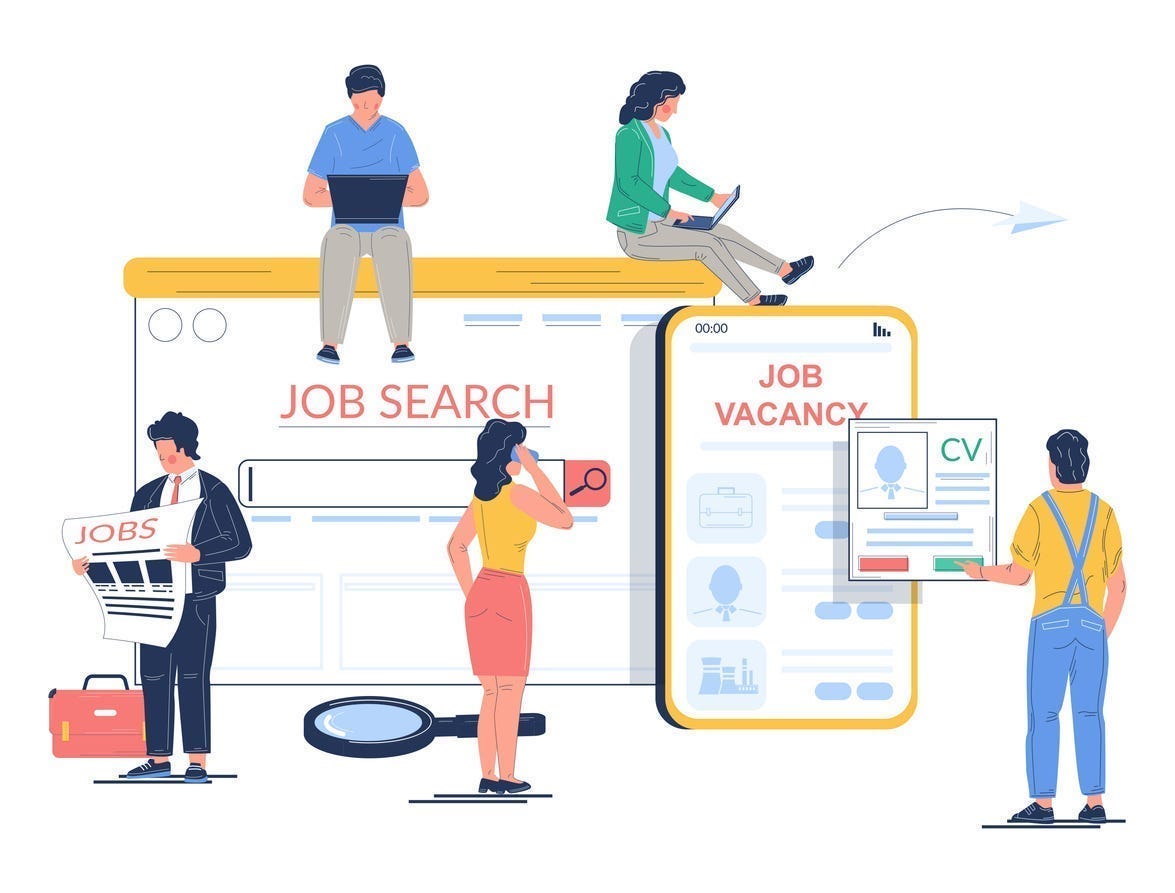Even though the thought of networking makes a lot of people cringe, it can make or break your job search. Done right, networking can connect you with people who will help you get hired.
The people you know and the people you meet can be the best resources to help you find your next job or move up the career ladder. You'll be able to get advice, job leads, and referrals and learn about companies that would be terrific to work for.
Unfortunately, the opposite is true if you mess it up. Networking gone wrong can cost you an opportunity to find job openings and get referrals. Networking is all about relationship building, and it's not a one-shot deal. To be effective, it should be ongoing and mutually beneficial for both you and your connections.
Before you get started, or if you need a refresher, review these tips to maximize the benefits of your networking efforts while avoiding some easy-to-make mistakes.
11 Things Not to Do When Networking
1. Start networking without updating your resume and LinkedIn profile. You should be ready to respond if your networking contact offers to make an introduction or a job referral. Update your resume and LinkedIn (and make sure they match) before you start seriously reaching out. And keep them updated so you're always ready for your next career move.
Tip: Before you start updating and actively networking, be sure to turn off your LinkedIn activity feed so the boss doesn't see that you're job hunting.
2. Be an on-again, off-again networker. Maintaining a good relationship with your connections requires a sustained effort whether you are in job search mode or not. Chat with your contacts every once in a while and exchange updates. If you know someone who's out of work, check in with them to see how they are doing. They'll remember when the tables are turned.
3. Connect only online. When feasible, don't rely just on virtual interactions with your connections. A phone or in-person conversation can help bolster your relationship. Even a quick meeting over a cup of coffee can lead to more recommendations for connections and job referrals.
Tip: Remember that your networking connections don't all need to be professional ones. Parents at the playground, people you talk to at the gym, or the dog-walking people you see every morning, for example, can all help you get hired.
4. Make it all about you. Your networking communications should be about more than you and the help you need. Offer assistance to your contacts, and they will be more likely to help you when you reach out to them. For example, share articles, news, and other information when you think they might interest your connections.
5. Asking for a job is not a good idea. Be subtle, and don't ask directly for job search assistance too early. Lay the groundwork by exchanging updates and asking for advice, and let the request for job referrals flow naturally from your conversation. Often, it is best to let your networking partner take the lead by offering assistance.
6. Telling the world you're job hunting isn't a good idea either. If you're out of work, mentioning that you're Open to Work on LinkedIn makes good sense. But if you're currently employed, don't advertise that you're looking for a job or are thinking about a career shift. It's better to message your connections privately without tipping your hand about finding a new job.
7. Limit your outreach to individuals in the jobs and industries you're interested in. For example, you may be looking to move to another position within investment banking and haven't contacted your uncle because he is a lawyer. However, you might be missing out since your uncle's best buddy may run a hedge fund, and he would be happy to assist. You never know who knows someone who can help—that's the power of networking.
8. Miss the opportunity to tap your college network. If you're a college student or grad, remember to check on what resources are available. Most colleges have networking groups on LinkedIn. In addition, the career services office may have a career network you can tap into and may sponsor online and in-person networking events that you can attend.
9. Say something (anything) negative. Don't badmouth your manager, co-workers, or employer (or previous ones) when networking. You might be perceived as negative, and you definitely don't want your comments to get back to the person you're discussing. Plus, you may need them to give you a reference at some point.
10. Forget to ask for advice and assistance. People may not realize that you need help if you don't ask. Be sure to ask questions such as these: "What would you advise me to do at this point to advance my job search?" and "Can you think of anyone else I should talk to about my search?"
11. Neglect to follow up your meetings with a thank-you email or message. If you discuss any next steps with your connections, reaffirm your intention to follow through and thank them specifically for anything they have offered to do. Here are some examples of networking thank-you letters you can use as templates for your correspondence.
Our Favorite Tools & Tips
JobLogr: JobLogr is an AI-powered site you can use to search for jobs based on your resume, write cover letters, prepare for interviews, and track your job applications. The application tracker is always completely free, and you can sign up for a 30-day free trial to try out the other features.
Tips for Discouraged Job Seekers: Are you tired, discouraged, or feeling like you'll never find a new job? Do you really need a job, but nothing you do seems to work? Here are tips that can help you get your job search on track and try out new approaches that can help you get hired.
Back to Basics Job Searching: A reminder that job searching the old-fashioned way still works. You can write resumes and cover letters, apply for jobs, interview, and get hired without spending money on the (too many) people selling services that supposedly guarantee you’ll get hired or mass applying to hundreds of jobs at once (which doesn’t work). Here are tips to simplify and expedite your job search.
News & Noteworthy
Do You Get Time Off To Vote?: Will you get time off from work to vote? JD Supra reports that 23 states and Washington, D.C. require employers to provide their employees with paid time off on election day, typically between one and three hours. Seven states mandate unpaid time off to vote. In the other 20 states, you’ll need to vote on your own time.
October Layoffs: 2024 continues to be a year of employees losing their jobs in many sectors, despite the low unemployment rate. The Verge reports that Meta is laying off staff at WhatsApp, Instagram, and Reality Labs. TechCrunch reports layoffs at TikTok, FreshBooks, Stellantis, Samsung, and Boeing. Layoffs.fyi reports over 140,000 tech company job cuts so far this year.
Diversity in Decline: CEO turnover is up 15% year over year, but diversity hiring for C-suite is lower than ever. The number of women CEOs has dropped to 27.2%, with just 52 women-run companies. Only eight Fortune 500 companies have Black CEOs.
Sponsored by Remotive
When you’re looking for a 100% remote job, Remotive can expedite your search, and the basic version (2000+ jobs) is free. Learn more about how Remotive can accelerate your job search, and sign up for the Remotive Accelerator to access over 30,000 listings and the Slack community for a one-time fee.
Note: We may receive a small commission if you sign up using this link.






